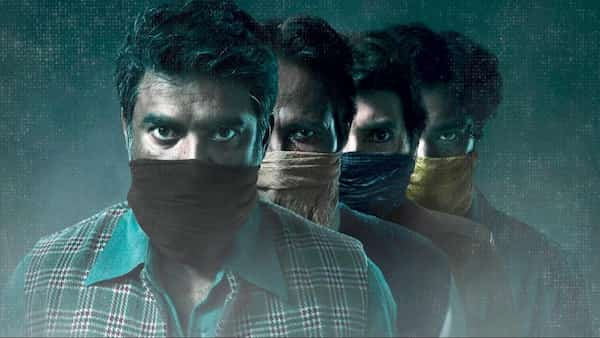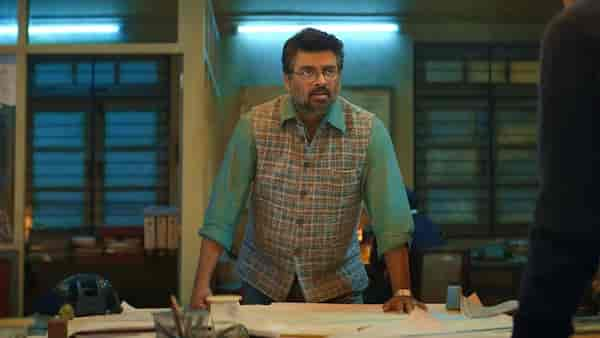The Railway Men: Making A Series So Unremarkable Is A Feat In Itself
This is #CriticalMargin, where Ishita Sengupta gets contemplative over new Hindi films and shows.

Last Updated: 07.14 PM, Nov 29, 2023
Shiv Rawail’s The Railway Men, an episodic chronicle of the 1984 horrific Bhopal gas tragedy conveyed through the toil of the railway officials in the city, adopts an oft-used style. During its runtime, the show frequently pairs the recreated moments with real-life footage. Outings based on real events tend to do that, possibly with the intent of underlining the truth of their portrayal. But it really is a self-congratulatory move, wherein the makers parade the “effort” they have undertaken and seek applause for it. This observation stands true especially in the case of the new Yash Raj-Netflix collaboration which is unwavering in its commitment to be surface-level. The result is a hollow-shaped work where incidents are more duplicated than depicted, and statistics are more regurgitated than rendered with a humanist core.
On paper, the visual shift makes perfect sense. When human tragedies occur, public systems are humanized in their duty to be first-responders. Nikhil Advani’s Mumbai Diaries, outlining the way government doctors put up a brave front amidst bureaucratic pressure and social and national emergency, is a terrific example of this strive. The Railway Men lies on the other end of the spectrum. The show takes an immensely persuasive premise and dunks it in loads of sentimentality and far-fetched resolutions.
It is not just a writing problem, it is also a filmmaking and production problem that feels famously out of touch like no one from the makers’ team is clued in the current streaming space in India. There are many examples. When a young boy does not return home and the city is coughing to death, his “poor” mother looks at the screen and gives an elaborate sigh; there are two orphan kids at the railway station and one sings lullaby for the other; a man gets stabbed just when he he gives a long sigh of relief thinking he is safe; an evil man arrives with a briefcase full of cash to bribe a government official; an evil white man is so sinister that he feels one breath away from asking for lagaan (tax) from the Indian workers.

None of these are outrightly unwatchable but they are also heavily designed to cause an effect. They are borne of the filmmaker’s assumption that to retell an incident that happened two decades back, he ought to adopt a storytelling grammar that is as old. This only makes one appreciate directors like Raj & DK for the effortless way they inject newness in otherwise mundane situations, a trait that has proved to be instrumental in sustaining attention in long form shows. On the contrary, The Railway Men is so dense that it feels rushed even as a feature film. When the calamity strikes, it takes a man one rousing speech to assimilate help for the victims. It matters not that no one knew the extent of the crisis and fearing uncertainty, someone might have backed out.
This heavy-handed treatment single-handedly pulls down scenes which otherwise are fun. Take for instance that moment when a bandit holds a knife to a man’s throat and seconds later, tells the man to hold it himself because he has to use the washroom. Such whimsicality would have soared in a show like Farzi or The Family Man but here, it hardly lands here because nothing before or after this is in sync with this.
As the title suggests, the story is mainly set in the railway station in Bhopal and tracks the city from 16 hours before the leak. There is an upstanding station master, Iftekaar Siddiqui (KK Menon) who fights with his lie to save as many people as he could, a young man called Imad Riaz (Babil Khan) who is a loco pilot on the first day of his job when the tragedy strikes. Then there is an Express bandit (Divyenndu) who arrives in Bhopal on the fateful day to steal from the station locker, and a righteous journalist (Sunny Hinduja; modeled on Indian journalist Rajkumar Keswani), who is out to expose the danger posed by the Carbide plant. On the other side is the general manager of Central Railways (R Madhavan), who flouts orders to bring relief to the station.
One of the main things that worked in Mumbai Diaries, or even in Anubhav Sinha’s Bheed (2023), which depicted the mass exodus of the migrant workers from the city to the village during the 2020 lockdown, is their reenactment of a crisis with real-time urgency and not informed retrospect. Their narratives are imbued with uncertainty that feels authentic— solutions are stumbled upon and not arrived at, an odd day snowballs into a catastrophe. In the case of The Railway Men, it is the opposite. When the gas is leaked, the focus remains on the people stuck in the railway station. They start coughing, some collapse. Having worked in the Carbide plant before, Imad is aware of the problem. He tells them to cover their faces with wet handkerchiefs. A little later we see everyone doing it, not just in the station but elsewhere. It is not clear how they arrived at it but such narrative jumps dilute the shock of the moment. They deflate the confusion that must have ensued.
Unsurprisingly, the chaos that is created feels imitative, drawn externally. For one, the screenplay is unbelievably crowded. Each episode, there are four, introduces a new subplot and a new main character. All of them exist to emotionally manipulate and draw out tears from the viewers. But in a shocking plot twist, each is as memorable as the thoughts we have in idle afternoons, which is to say not much. This is only made worse by the tendency of the series to forget its characters at will. Several of them remain absent for long stretches of time which lessens interest (to reiterate: they are very forgettable) and creates no tension.
The debut director ties the gas leak with the anti-Sikh riots that had erupted in the country post the assassination of former prime minister Indira Gandhi on October 31. A train coming to Bhopal from Delhi gets infiltrated by the rioters. They hound a Sikh woman and her son. We see them following her and then Rawail leaves the moment hanging. By the time he comes back to it, everything about the premise ceases to matter.
On December 2, 1984, a pesticide plant in Bhopal became the source of one of the biggest industrial disasters in the world when 40 tons of the highly poisonous methyl isocyanate gas leaked from there and killed four thousand people and inflicted unimaginable physical and mental suffering on the rest of the people in the city. The original perpetrators, the Union Carbide Corporation (UCC) of the US, faced no consequences. Rawail takes this, assembles actors like KK, Divyenndu, Raghubir Yadav, and makes such an unremarkable series that it feels like a feat itself. No matter the men, this railway was fated to derail.
(Disclaimer: The views expressed in this column are those of the author and do not necessarily reflect the official policy or position of OTTplay. The author is solely responsible for any claims arising out of the content of this column.)

 Premium
Premium